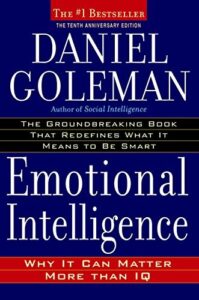
Question More, Action Knowledge.
Remember, at QMAK, we don’t just teach; we empower. We don’t just inform; we inspire. We don’t just question; we act. Become a Gold Member, and let’s unlock your child’s full potential, one question at a time.
 As homeschooling parents, we have the profound opportunity to help our children develop not only their intellectual abilities, but also their emotional intelligence – the capacity to recognize, understand, and skillfully manage their emotions and relationships. We want to equip them with the self-awareness, self-control, and interpersonal skills to navigate life’s challenges with wisdom, resilience, and compassion.
As homeschooling parents, we have the profound opportunity to help our children develop not only their intellectual abilities, but also their emotional intelligence – the capacity to recognize, understand, and skillfully manage their emotions and relationships. We want to equip them with the self-awareness, self-control, and interpersonal skills to navigate life’s challenges with wisdom, resilience, and compassion.
In his groundbreaking book Emotional Intelligence, psychologist Daniel Goleman argues that EQ is a more powerful determinant of success and well-being than IQ. By integrating his insights into our homeschooling approach, we can nurture emotionally literate children who can thrive in all areas of life.
At the core of Goleman’s work is the idea that our traditional notion of intelligence is far too narrow, ignoring a crucial range of abilities that matter immensely for how we fare in life. As he writes, “At best, IQ contributes about 20 percent to the factors that determine life success, which leaves 80 percent to other forces.” He identifies emotional intelligence as the key set of skills that make up much of this other 80 percent.
So what exactly is emotional intelligence? Goleman breaks it down into five main domains:
By helping our children understand and cultivate these capacities from an early age, we set them up to make the most of their intellectual abilities and handle whatever life throws their way. At QMAK, our emphasis on “Question More, Action Knowledge” aligns beautifully with Goleman’s focus on self-awareness, intentional action, and relational intelligence. We want our kids to be astute observers of their inner world, to take proactive steps to manage their emotions and impulses, and to use their insights to enhance their connections with others.
One of the key components of emotional intelligence that Goleman highlights is self-awareness – the capacity to recognize and understand our emotions as they arise. As he explains, “Self-awareness is not an attention that gets carried away by emotions, overreacting and amplifying what is perceived. Rather, it is a neutral mode that maintains self-reflectiveness even amidst turbulent emotions.”
We can help our children develop this invaluable skill by teaching them to tune in to their inner experience with curiosity and acceptance, rather than judgment or avoidance. By learning to name and acknowledge their emotions, they gain the power to respond intentionally rather than react unconsciously. Regular check-ins, journaling, and mindfulness practices can support them in building this “meta-awareness” of their feeling states.
Another crucial element of EQ is self-control – the ability to manage our impulses and emotions in service of our goals and values. Goleman cites fascinating research on delayed gratification in children, showing that the ability to resist temptation at age four is a more powerful predictor of later academic success than IQ.
We can nurture our children’s capacity for self-regulation by teaching them strategies for navigating big feelings, such as deep breathing, self-soothing, or taking a quick break to calm down. By learning to take the pause between stimulus and response, they develop the emotional discipline to stay focused and act with intention even under stress. Playful challenges, such as seeing how long they can wait to eat a treat, can help them practice flexing their self-control muscles.
Motivation is another key aspect of EQ – the drive to pursue goals with energy and persistence, even in the face of obstacles and setbacks. Goleman emphasizes that people with high levels of motivation embody an optimistic, “growth mindset,” seeing challenges as opportunities to learn and improve rather than threats to be avoided.
As homeschoolers, we have the chance to instill this resilient mindset by praising effort over innate ability, celebrating the process of learning from mistakes, and helping our kids find authentic purpose in their pursuits. By tying their studies to their own questions and passions, we foster an intrinsic motivation to learn that will serve them well throughout life.
Empathy, Goleman asserts, is a fundamental people skill, allowing us to read and respond to others’ emotions and needs. He describes it as the root of compassion and the basis of all successful relationships. We can cultivate empathy in our children by modeling and encouraging perspective-taking, active listening, and compassionate communication.
When conflicts arise, we can guide them to consider the other person’s experience and needs, fostering understanding and creative problem-solving. By learning to attune to and care about others’ feelings, they lay the groundwork for rich and rewarding relationships throughout life.
Finally, Goleman highlights the importance of social skills in navigating emotions in relationships and creating positive connections. These include essentials like managing first impressions, expressing feelings effectively, and persuading and leading others.
We can support our kids in building their social intelligence by coaching them in skills like reading body language and facial expressions, assertive communication, and conflict resolution. Role-playing social scenarios, debriefing real-life encounters, and encouraging collaborative projects all provide opportunities to hone these critical competencies.
By embracing the insights of Emotional Intelligence and integrating them into our homeschooling, we give our children an invaluable foundation for success and fulfillment in all areas of life. As Goleman writes, “Emotional intelligence skills are synergistic with cognitive ones; top performers have both. The more complex the job, the more emotional intelligence matters…The brightest future belongs to those organizations and individuals that develop this capability.”
At QMAK, we believe the same holds true for families. By making the development of emotional intelligence a cornerstone of our children’s education, we equip them with the self-understanding, relational wisdom, and grounded optimism to create lives of passion, purpose and positive impact. Let us join together in this vital mission and embrace a new vision of success – one that honors the power of both the head and the heart.

Remember, at QMAK, we don’t just teach; we empower. We don’t just inform; we inspire. We don’t just question; we act. Become a Gold Member, and let’s unlock your child’s full potential, one question at a time.